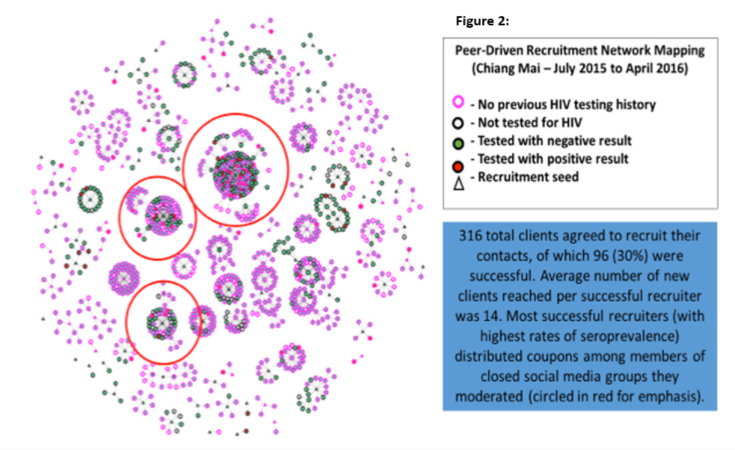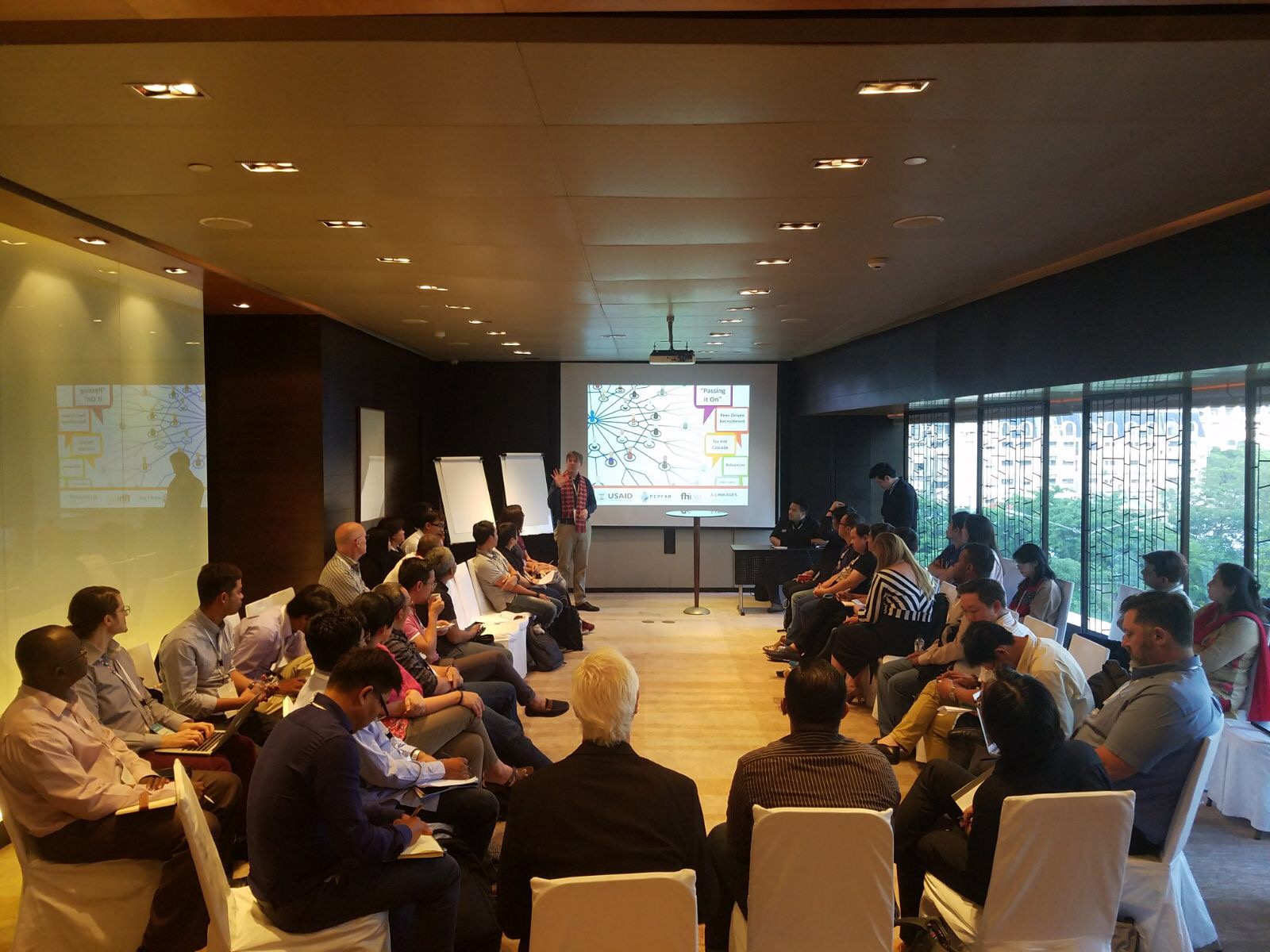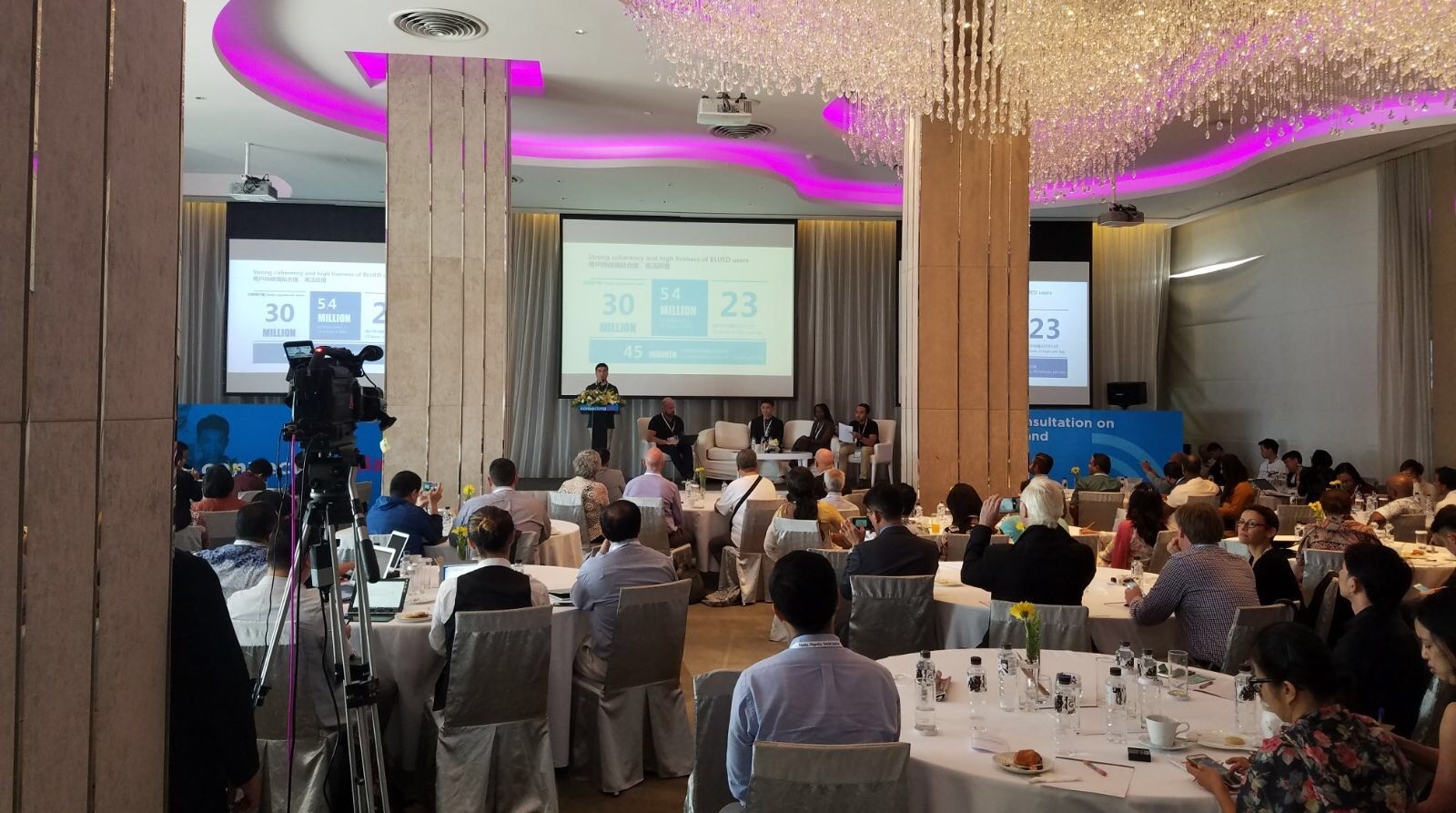Written by Matt Avery, Associate Director, Global Health, Population, & Nutrition, FHI 360
Men who have sex with men (MSM) have a greater risk of HIV infection when compared to the general population and, in many regions, MSM account for the largest proportion of new HIV infections. Global programs designed to reach these individuals continue to depend on traditional, venue-based outreach and recruitment models, while MSM themselves are increasingly shifting to social media platforms to find social and sexual partners, access information about HIV, and, increasingly, receive services. The USAID- and PEPFAR-supported LINKAGES project in Thailand is piloting an online peer-driven intervention model to harness the power of social media influencers in reaching MSM virtual communities to identify high-risk individuals for HIV testing and referral to treatment.
LINKAGES’ partners are already implementing a form of peer-driven outreach in several cities in Thailand in which program clients are offered the opportunity to recruit members of their social and sexual networks to HIV testing in exchange for small incentives. When this model was introduced in Chiang Mai, initial results revealed that peer-driven recruitment could significantly contribute to overall programmatic reach and HIV testing uptake with comparatively high rates of HIV case-finding (Figure 1). What implementers did not anticipate was the emergence of “super-recruiters”—individual clients who successfully recruited 50 or more new MSM into the program (Figure 2). The most successful super-recruiters were moderators of highly active online platforms who were using their virtual networks to recruit large numbers of clients.
Based on the preliminary data, LINKAGES plans to replicate this model on a larger scale using targeted recruitment. More than 100 MSM-themed Facebook support groups are active in Thailand, some of which are organized around such specific activities as condomless sex or “party and play”—a term used to describe drug use coupled with sexual activity. Some of these Facebook groups are extremely popular with more than 20,000 registered members who represent a pool of underserved and potentially high-risk MSM.

LINKAGES recently partnered with Attitude Thailand, a leading MSM magazine, and Blued, a widely used social media application for MSM, to host a “VIP” party for key social media influencers, including moderators of some of the largest Facebook groups in Thailand. More than 150 influencers attended this event, where they received basic information about HIV among MSM in Thailand and counseling on the role they could play in helping to end the epidemic. Fifty Thai influencers agreed to work as online recruiters with LINKAGES, disseminating information and content about HIV prevention, testing, and treatment to their social media networks and referring their members for HIV testing through LINKAGES partners in exchange for small incentives.

Matt Avery presents during a multi-country sharing session at Connecting Asia HIV (Photo: Ben Eveslage).
To facilitate this process, LINKAGES Thailand has launched an online appointments application linked to key HIV testing providers known to provide MSM-competent services. Users can learn more about available services and view videos of the different centers, select a date and time to receive an HIV test, and provide contact information to allow health care facilities to follow up and confirm appointments. This tool can be integrated into any online platform and allows the project to track successful testing referrals from each participating platform and compare rates of testing uptake and case-finding. The tracking function also allows LINKAGES to monitor incentive payments for individual online recruiters, who can be paid via electronic bank transfer for complete confidentiality.
In his opening address, Glyn T. Davies, U.S. Ambassador to Thailand, shared his thoughts: “Social networking and social media are opening doors to inclusiveness like never before. The Internet allows for more voices to be heard, more perspectives to be shared, and more effective solutions to be reached. Social media platforms offer innovative new tools to help hasten an end to AIDS.”
In the coming months, LINKAGES Thailand will be translating these thoughts into practice and generating data that will broaden the evidence base of effective social media-based HIV interventions.

LINKAGES introduces online recruitment model to improve access to HIV services for MSM across Asia (Photo: Ben Eveslage).
